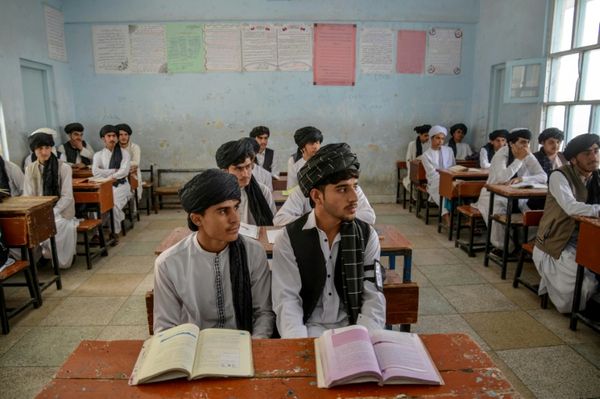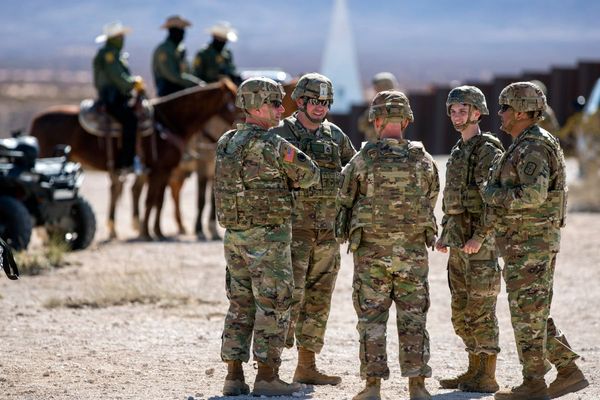AYESHA RASCOE, HOST:
For nearly 50 years, Americans have had the right to abortion, but that could end soon if the Supreme Court overturns Roe v Wade. Last week, a leaked draft opinion showed a majority of justices may be willing to do just that. The case the court is considering is Dobbs v. Jackson Women's Health Organization. It deals with a Mississippi law that shortened the window for abortion from 20 weeks to 15. The Jackson clinic is the only abortion provider in the state. Shannon Brewer is its director and joins us now. Welcome to the program.
SHANNON BREWER: Good to be here.
RASCOE: Could you tell me about how you and your staff are feeling, you know, after seeing this draft opinion?
BREWER: My staff and I - we were kind of prepared for it. It didn't really catch us off guard. It didn't surprise us.
RASCOE: Your clinic is the only abortion provider in Mississippi. So that's a state of millions of people, right?
BREWER: Yes.
RASCOE: Are you seeing a whole lot of patients? Is it - like, how far are they having to travel? I mean, it seems like care is already curtailed in the state of Mississippi.
BREWER: Correct. We've always seen a lot of patients because we're the only facility. But when SBA took place in Texas, we were seeing patients three days a week, then we moved it up to five days.
RASCOE: And this is the law in Texas that banned abortion pretty much after six weeks.
BREWER: Correct. It affected all of the states that surrounded Texas. And a lot of those facilities are booked up. Louisiana right now - they're scheduling patients for a month to a month and a half out. So not only are we seeing Texas patients, we're now seeing Louisiana patients also, and then, of course, our Mississippi patients here. And we don't know what's going to happen once this decision comes down. You take one state like Texas and look how it's affected all these other facilities. Multiply that times 20 and you've got a catastrophe on your hands.
RASCOE: If the court does, in fact, uphold the Mississippi law and effectively overturn Roe in its final ruling - and to be clear, we do not know exactly what the outcome would be. It hasn't happened yet. But if so, what would that mean for pregnant people in your state and your surrounding states? You said it's a catastrophe. What would happen?
BREWER: What you're going to get - you're going to have an uptick in women showing up at the hospitals - at these emergency rooms because people are going to be doing things that may not be as safe. And then you're going to have a lot of unwanted pregnancies. So you're going to have women and young girls hiding their pregnancies from family. And, you know, you're going to find a lot of abandoned children.
RASCOE: Nearly three-quarters of the people obtaining abortions in Mississippi are Black, according to data from 2020. What can you tell us about how communities of color, Black people, working-class people would be affected?
BREWER: Yeah, the majority of the patients that we see are women of color here. The women who are already struggling and living check to check and trying to survive - those will be the ones who won't have the access in order to have these services because some won't be able to travel. Even if you can help them travel - which is one of the things that we were talking about maybe doing is helping with travel - what a lot of people don't realize is that a lot of women who grew up without all of the extra means, as I say - they've never been on an airplane. They've never traveled and know how to maneuver that. So they would need someone to assist them with that. But these are the women that are going to be affected the most because they can't take off work. They don't have anybody to watch their kids if they already have kids. That's just - that's the reality.
RASCOE: And so how would this decision impact the future of your clinic? I understand that you guys may move out of Mississippi to New Mexico. Is that still the plan?
BREWER: Yes, we are planning on opening a facility in New Mexico. And we are going to be trying to see patients there and assist patients from here to come there for services or wherever the patient may want to go for services. We hope to have that up before the decision is made.
RASCOE: And so that's to prepare for whatever happens after this, but still to try to provide some services in Jackson as well.
BREWER: Correct. If we can do ultrasounds, checkups - that's where we're trying to figure out exactly what we are still going to be able to do from here.
RASCOE: What's something that you feel like people don't understand even now, like, about the fight that is going on and will continue to be going on likely once this final decision comes down?
BREWER: I think people don't understand that, if this goes the way that they want it to go, which is to, you know, ban abortion in about half of the United States, it's not going to be easy to ever get that back. I'm sure it won't happen in my lifetime. What people don't understand is it's a lot easier to fight for something while you still have it than it is to get something back once you lose it. The Supreme Court is the law of the land. If they can do this, then we need to be prepared for anything that may happen.
RASCOE: Shannon Brewer is the director of the Jackson Women's Health Organization. Thank you so much for being with us.
BREWER: You're welcome. Thank you for having me. Transcript provided by NPR, Copyright NPR.







